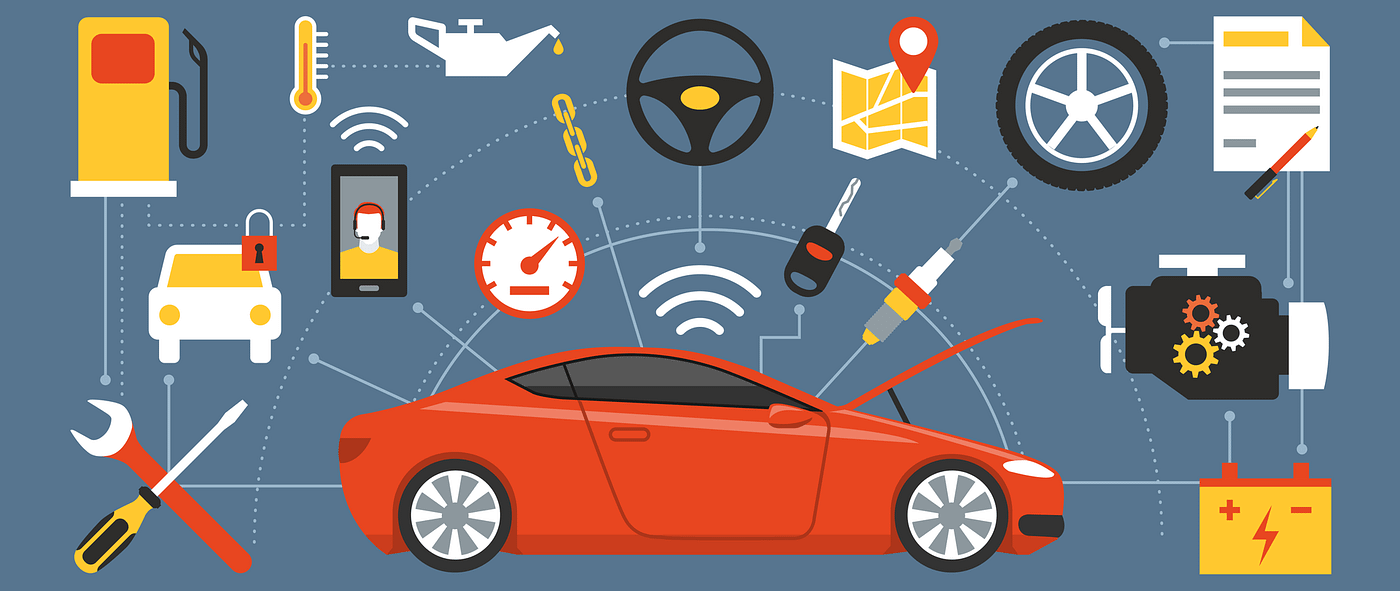Featured
When your vehicle experiences a significant break down, the cost of fixings can be an overwhelming financial consideration. Whether it's the failing of a critical system like the engine or transmission, or the requirement for extensive repair work to different elements, recognizing the factors that affect fixing costs can assist you make more enlightened choices. Listed below, we detail the essential aspects that add to the price of significant car repair work.
![]()
![]()
![]()
Final thought. Numerous aspects affect the price of major vehicle fixings, consisting of the sort of fixing, the make and version of your automobile, the top quality of the parts utilized, labor charges, and the extent of the damages. Understanding these elements can help you make even more informed choices and prepare for the economic ramifications of cars and truck fixings. To lessen the probability of expensive fixings, routine upkeep is crucial. By remaining on top of regular upkeep and resolving small problems prior to they escalate, you can reduce the opportunities of encountering costly fixings in the future.
- Kind of Fixing. The key factor affecting the cost of auto repairs is the type of issue your automobile is experiencing. Some repairs are extra budget friendly and straightforward, such as replacing a battery or generator. Other repair services, like dealing with a malfunctioning transmission or dealing with a severe engine trouble, can be far much more expensive due to the intricacy and specialized labor called for. Specific systems in a cars and truck, like the engine or transmission, need more time to repair and diagnose, which directly translates right into greater labor charges. In addition, some issues, such as electric problems or air conditioning malfunctions, might include repairing that increases the overall cost.
- Lorry Make and Model. The make and version of your vehicle plays a significant duty in figuring out repair prices. High-end cars and high-performance cars like BMWs, Audis, or Mercedes-Benz have a tendency to have higher repair service expenses due to their specialized parts, progressed technology, and the proficiency required for their repair. The accessibility of parts can additionally increase the price; parts for uncommon or international models are often extra costly to source than those for domestic automobiles like Ford or Chevrolet. In addition, some lorries, especially those with special or sophisticated systems, may require specialized auto mechanics or tools, contributing to the general repair work cost.

- Parts Top Quality and Availability. The top quality of the components made use of in the repair service considerably affects the price. Due to the fact that they are made particularly for your vehicle and are guaranteed to fulfill factory requirements, original Tools Supplier (OEM) components are typically extra costly than aftermarket components. While OEM components make certain top quality and longevity, they frequently feature a greater cost. Conversely, aftermarket parts may be more economical yet can differ in quality. In some cases, less costly aftermarket parts could lower the total repair work cost, yet they may not offer the exact same durability as OEM parts, which can cause extra repairs in the future. The availability of components, specifically for older or uncommon vehicles, can likewise impact the price. If components are tough to locate, it might take longer to complete the repair service, leading to higher labor prices.
- Labor Prices. When it comes to car repair services, labor is one of the largest expenses. Auto mechanics usually bill by the hour, and repair service times can differ depending upon the complexity of the issue. Some repair services, such as engine overhauls or transmission fixes, might require numerous hours or also days of labor, dramatically raising the complete cost. Labor prices also depend upon the place of the repair service shop-- mechanics in high-demand locations or urban areas may bill greater prices due to the price of living and overhead. Furthermore, specialized repair work for facility systems might require even more knowledgeable specialists, whose hourly rates have a tendency to be higher.
- Degree of the Damage. The extent of the damage is an additional crucial aspect influencing fixing prices. If the damage is confined to one part of the automobile, such as a busted alternator or damaged brake pads, the repair service will typically be much less expensive.
- Car Age and Condition. The age and overall problem of your automobile play a substantial function in the expense of repairs. Well-maintained automobiles tend to have lower fixing prices due to the fact that their systems are in much better working condition, requiring less and much less costly repairs.
- Shop Area and Credibility. The repair shop you select can also influence the price of your repair services. Furthermore, repair shops that specialize in specific brand names or types of repair services might charge more for their knowledge.

- Guarantee and Insurance Insurance Coverage. If your auto is still under guarantee, major repairs might be covered, which can significantly decrease your out-of-pocket expenditures. Furthermore, if the damage is triggered by an accident or external element, your vehicle insurance coverage might cover the repair work expenses, much less any kind of deductible.
Final thought. Numerous aspects affect the price of major vehicle fixings, consisting of the sort of fixing, the make and version of your automobile, the top quality of the parts utilized, labor charges, and the extent of the damages. Understanding these elements can help you make even more informed choices and prepare for the economic ramifications of cars and truck fixings. To lessen the probability of expensive fixings, routine upkeep is crucial. By remaining on top of regular upkeep and resolving small problems prior to they escalate, you can reduce the opportunities of encountering costly fixings in the future.
Latest Posts
Schedule Professional Eye Exams at Vision Center South
Published May 07, 25
2 min read
Locate Your Closest Vision Center South for Premium Eye Care
Published Apr 30, 25
2 min read
Vision Center South: Comprehensive Eye Exams
Published Apr 30, 25
2 min read